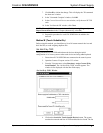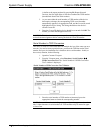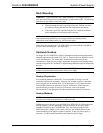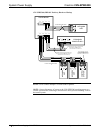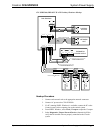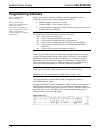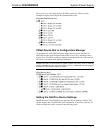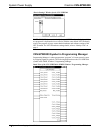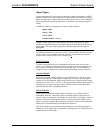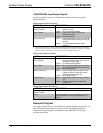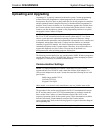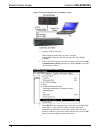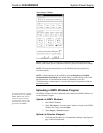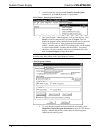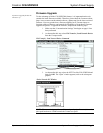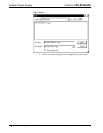
Crestron C2N-SPWS300 System Power Supply
Operations Guide – DOC. 8190 System Power Supply: C2N-SPWS300 • 17
Signal Types
Signals interconnect the various devices and logic symbols that comprise a SIMPL
program. Signals can be one of three types: digital, analog, or serial. For any given
signal, the signal type is determined by its driving source. That is, if the symbol that
drives the signal has an analog output, then, by definition, the connecting signal is
analog.
In SIMPL Windows, the signal types are color-coded as follows:
Digital = Blue
Analog = Red
Serial = Black
Undefined/Other = Green
NOTE: “Other” signals are a combination of the three basic types (e.g. many
symbols accept either analog or serial signals where the combination is shown as a
green signal). The signal type is displayed on the Status Bar when the signal is
highlighted.
For additional information, refer to Doc. 6120, Crestron SIMPL Windows Symbol
Guide. It may be downloaded from the Downloads | Product Manuals | Software
section of the Crestron website (www.crestron.com)
.
Digital Signals
A digital signal contains one bit of information and usually takes on one of two
values: 1 or 0. These two digits can represent the logical values true and false, and
they can be represented in an electronic device by the states on/off or high/low,
recognized as two voltage levels. (Other common descriptors are active/inactive.)
Analog Signals
Unlike digital signals, analog signals can vary continuously in value, in the same
manner as a parameter such as volume, temperature, or pressure. Analog signals
contain 16 bits of information, which means that this type of signal can have values
ranging from 0 to 65535 (2
16
-1). This 16-bit property makes analog signals useful for
controlling devices that do not have discrete settings, such as volume controllers,
pan/tilt head controllers, and lighting dimmers.
Serial Signals
Serial signals are much like analog signals, in that they, too, contain 16 bits of
information. However, whereas the value of an analog signal is used directly-to
control volume or temperature, for instance–the value of the serial signal is used as a
pointer to a location in memory that contains a string of characters. When a serial
signal is routed to a symbol, that symbol can identify the signal as serial rather than
analog and it will automatically look at the data it points to.
Thus serial signals are used to facilitate the transmission of serial data (strings of
characters). These signals can be generated by incoming data on a COM port or by a
symbol that has a serial output.



